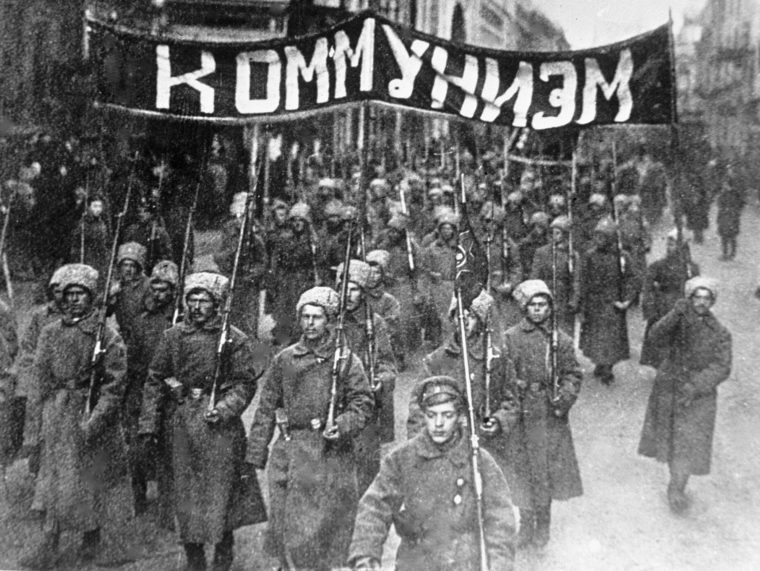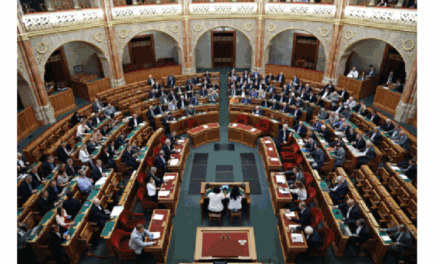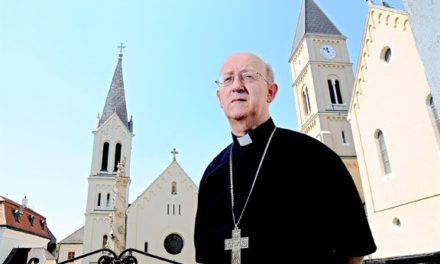The historian Zsuzsanna Borvendég's series was originally published on the PestiSrácok website, but there are certainly those who missed it. But those who haven't read all the parts should also read it again. Knowing the whole picture, can we understand how we got here?
To replace the currently ruling political formation, subversion, that is, disruption of order and tranquility, is the oldest and most proven methodology, which may even be sufficient to initiate radical social changes. Even the "enlightened" Jacobins knew this, but it was really the far-left anarchists who grew out of Marxist doctrine who perfected the tricks of creating confusion. They did not allow their "knowledge" to be forgotten, they wrote detailed recipe books - and are still writing them today - which their late descendants can follow step by step to further destroy everything that means security and predictability for the majority of people, i.e. the possibility of a normal life.
Parvus enters the scene
In the war-ravaged spring of 1915, a well-known revolutionary walked into the German embassy in Constantinople and handed over a script. Aleksandr Lvovich Parvus , whose original name was Izrail Lazarevic Gelfand (one of his movement pseudonyms: Helphand, or helping hand), was born as the son of a lower-middle-class Jewish family in Tsarist Russia, and at a young age he became a committed Marxist and a theoretician of permanent revolution.
His anarchist and subversive ideas made him a central figure in European far-left organizations, and he became an outstanding leader of the Bolshevik brigades. Lenin and Trotsky , he organized the social democratic forces in Switzerland and Germany, while as the chief treasurer of the international labor movement he was suspected of embezzlement : Gorky's play Night Shelter, which the writer intended to support underground left-wing organizations.
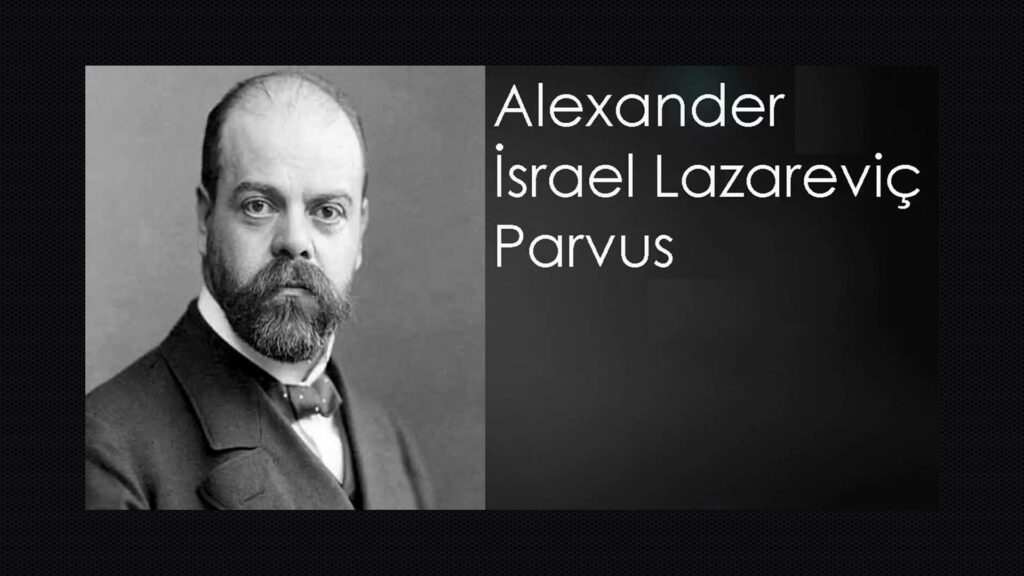
source: balkantimes.press
Although he later repaid his debt, the confidence of the Western communists in him was shaken. He settled in Istanbul, and since the Balkan wars accompanying the collapse of the Ottoman Empire offered a great opportunity to get rich, he began trading in weapons. The regional conflicts soon led to global conflagration, and Turkey - in whose capital Parvus also lived at the time - entered the Great War on the side of the Germans.
For the Bolsheviks, the cataclysm that caused the suffering of millions was nothing more than a chance to seize power. They thought that they could take advantage of the growing discontent in the semi-feudal Russian empire to implement one of the greatest human experiments in history, the dictatorship of the proletariat. For this, they sought supporters and allies, for example in the German government, for whom the liquidation of the Eastern Front was a key issue.
An action plan that is effective to this day
Parvus and his companions did not leave their plan to chance, but presented a detailed action plan to the officials of the German embassy in Istanbul. This "program booklet" contained all the basic principles that are still central to the activities of forces striving for subversion and disorder.
Let's see the top recommendations! They gave ideas on how to take advantage of the problems present in the empire to organize a movement from the mass of sufferers, and on the basis of which to choose a leader in some communities, who can be promoted to the leaders of the organization after running and building it up. Among them, those who can be the faces of the revolution on the stage of international politics can emerge later, and on the basis of which the "brand", the left-wing propaganda, can be developed, with which the members of Western societies can be sensitized.
They were still far from having actual power, but they were already thinking about building an alternate reality!
Make it difficult to feed the hinterland
Of course, it was recommended in the first round to reach out to the people living in the greatest misery, the residents of the areas most affected by the war, since spectacular results could be achieved with them with the smallest investment. The adventurer, also called the squid of the revolution, who already had a huge fortune at that time, and his fellow party members perhaps managed to convince the most vulnerable sections of society that they wanted their prosperity and that their actions were not motivated solely by the hunger for power. They agitated in the big cities and industrial centers, thoroughly mapped the supply routes and transport junctions, since by attacking them it is possible to effectively make it difficult to supply food and other public necessities to both the front and the hinterland - thus further increasing the misery and suffering, but most of all dissatisfaction.
The worse for the masses, the better for them. They proposed setting fire to oil wells as a means of political pressure, but they also discussed how easy-to-handle explosives could be smuggled into the country, which the fired-up proletarians could use to blow up roads, bridges, and railroads.
International atmosphere - familiar?
In addition to carrying out terrorist acts, ideological warfare was of prime importance. They recommended the organization of press campaigns, which were partly intended to incite the malaise and indignation of the Russian people, but which could also be used successfully in the world political arena: the creation of international mood was already considered an important role. Parvus emphasized the importance of exploiting national differences and supporting separatist aspirations, which was not an unknown technique of power for the German and Austrian rulers either - we have plenty of historical experience with this.
The compiled action program was convincing and impressive, the German ruler and his government enthusiastically accepted the unexpected help. Especially in that they not only got a feasible and effective scenario, but at the same time they also had a terrorist brigade determined to do anything at their disposal. And the icing on the cake was the program of the person named as the leader of the subversion. Who else could Parvus have recommended as the leader of the Bolshevik revolutionaries than his old comrade, Vladimir Ilyich Ulyanov , known in the movement as Lenin?

image source: Getty Images
Lenin promised everything for support
The communist leader, comfortably in exile in Switzerland, had a good sense of what the political offer was that the central powers could not refuse, and summarized what Russia's wartime opponents could expect if he came to power. After the declaration of the republic, he offered an immediate and unconditional surrender of arms, in which he waived any territorial or reparation demands, and also promised the withdrawal of Russian troops from Turkey, as well as renouncing strategic claims to the Bosphorus and the Dardanelles.
His domestic political plans also carried the promise of the weakening of the empire, since from the treatises on the expropriation of large estates and the granting of national autonomy, the Germans could rightly feel that their centuries-old rival would finally disappear from the scene of world politics. So they were ready to finance the ideas of the Bolshevik terrorists.
Underworld figures, undercover bank operations, secret service actions
For the first run, two million gold marks were delivered to Lenin and his companions, but the amount turned out to be insufficient, many times that amount was still needed in the future. Financial support was channeled through neutral countries: Switzerland, Scandinavia and Denmark served as centers for the organization of illegal activity. Parvus created the International Economic Research Institute in Copenhagen, under the cover of which he wove his dark plans like a spider weaves its web.
Huge forces were mobilized to hand over the remnants of the Russian Empire to these power-obsessed lunatics. Secret service operations, covert bank operations, and suspicious dealings of underworld figures accompanied the preparations for the coup, but it still took until November 1917 for the Bolshevik horde to walk up the steps of the Winter Palace in St. Petersburg to drink themselves unconscious in the tsar's wine cellar.
The history of the "glorious" revolution, the firing of the Aurora cannon, the heroic struggle of the sailors and proletarians are only the imprints of the false reality created afterwards: this lie was the real opium of the people.
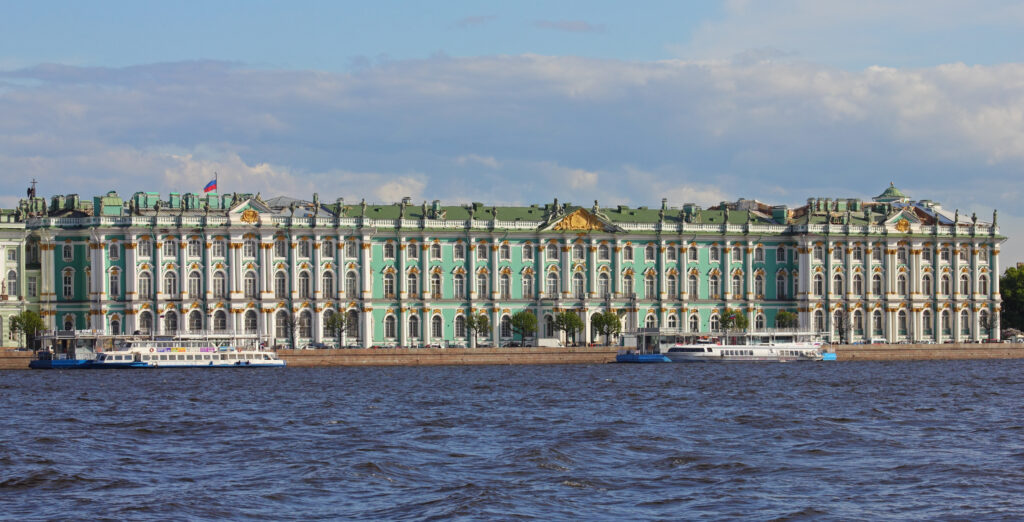
Tavern of the Bolsheviks - the Winter Palace (image source: wikipedia)
Parvus was ousted from power
Parvus was not given a place in the leadership of the emerging Soviet Union, nor could he live out his dreams. He remained in exile and died in 1924 at the age of 57. However, his "life's work" survived for a long time and claimed tens of millions of deaths and seas of suffering worldwide. The German Empire didn't get away with stopping doing business with these underworld guys either: after losing the war, the imperial dream was drowned in chaos, so that a new evil would rise from its ruins.
The West, on the other hand, did not learn at the expense of the Germans: it enthusiastically welcomed the Soviet social experiment and devoted a lot of money and energy to the consolidation of the Bolshevik party state. And the late followers of Parvus are spreading the old methodology of subversion and disorder with great success to this day.
Author: historian Zsuzsanna Borvendég
Source: PestiSrácok
(Header image: Photo: EUROPRESS/AFP/Sputnik)
The first part can be read here .

